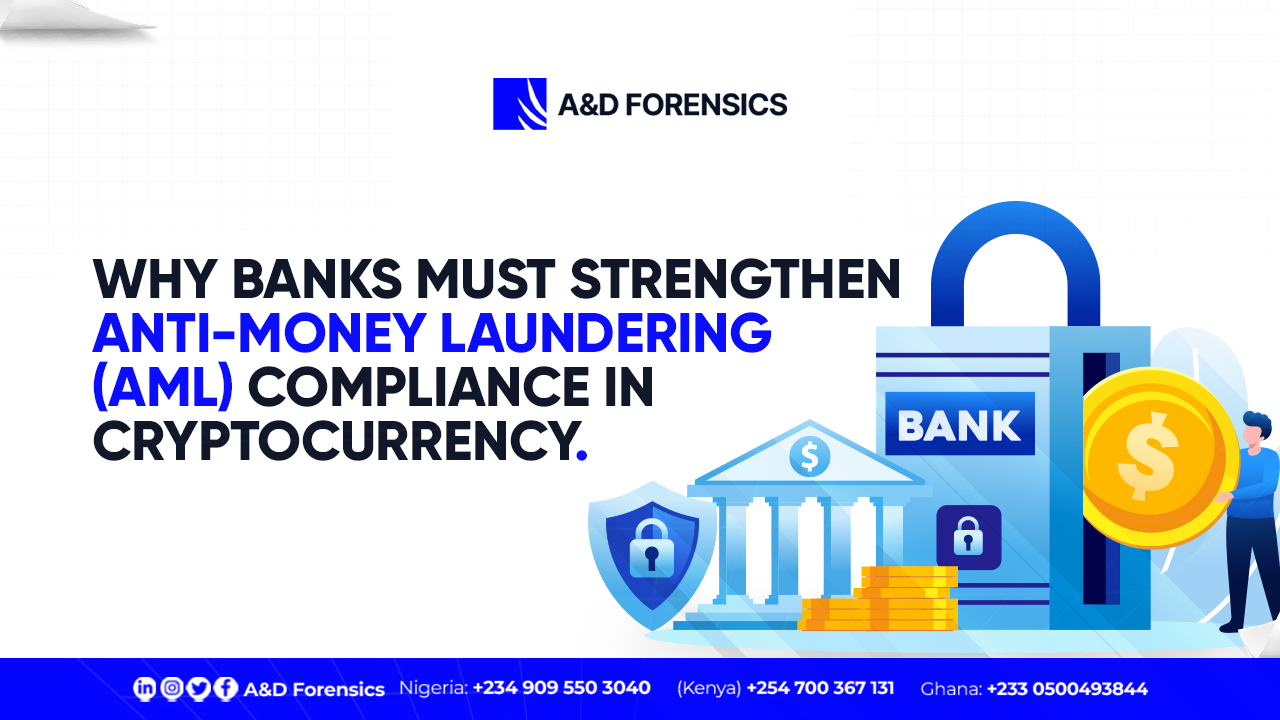IS YOUR CRYPTOCURRENCY EXCHANGE COMPLIANT?
The Office of Foreign Assets Control (OFAC) had on October 15, 2021, provided guidance on how cryptocurrency exchanges should comply in the industry. It’s no news that many federal regulations scrutinized the cryptocurrency industry after OFAC placed a ban on SEUX OTC in relations with ransomware.
Hence, the OFAC guidance is established to protect the cryptocurrency companies including cryptocurrency exchanges, wallet providers, virtual assets service providers (VASPs), OTC traders and miners.
The OFAC guidance provides the following:
1) A difference between Virtual and Digital Currencies: A Digital currency is a larger category of assets while a virtual currency is a subset of Digital currencies. In any case, both terms could be used interchangeably.
2) A breakdown on how to ‘block” digital currencies: Whenever a digital asset that ought to be blocked eventually gets blocked, no party is allowed to access the asset again. In the case where a fiat currency gets blocked, it should be placed in an interest bearing account. In addition, companies do not have the right to convert already blocked digital assets to fiat currencies before placing them in an interest bearing account.
3) An explanation of OFAC’s stringent liability rule: This means that exchanges who violate the rules are to be charged. For instance, if you unknowingly engage in a forbidden transaction, you have gone against the rules and you will be penalized.
The recent OFAC guidance also expanded on the essential components that every Sanctions Compliance Program (SCP) should have. They include:
a) Management Dedication: Just like the non digital financial services, the Head of Management should ensure that the compliance team have adequate tools and are thoroughly incorporated into the daily activities of the organization.
b) Assessing Risk: Digital asset companies are required to thoroughly review their potential exposure to illicit transactions, screen their clients to prevent risks and also protect their high risk customers. For this to be possible, the risk assessment methodology should be personalized to suite each company’s business.
c) Internal Controls: In as much as this aspect needs to be personalized to suite the companies business, it’s mandated to have some features such as:
i. Screen the company’s data and incorporate them into their SCP.
ii. Include the use of Geolocation tools, appropriate blocking of IP address and screening against sanctions.
iii. Use of appropriate blockchain analytics tools like Chainalysis KYT to identify transactions involving digital asset addresses associated with prohibited individuals or businesses identified on the OFAC Sanctions list or even situated in prohibited areas.
iv. Participants in the digital asset industry should regularly audit and test their schedules in their SCPs to access how effective they are in practice.
v. Employees should be trained at least annually on compliance so as to show the employee’s activities, the business structure of the company and their risk profile, and also to incorporate new technologies in the digital currency space.
Despite the fact that the OFAC guidance expects the digital asset industries to adopt an SCP, there are some issues that has remained unaddressed. For instance,
1) Rejection of incoming funds from sanctioned persons, and ensuring that outgoing funds from exchanges are not directed to sanctioned persons is yet to be practically feasible.
2) By charging a person(s) indirectly exposed to a prohibited wallet, one would wonder how to guarantee that the next transfer of a digital asset after the initial transfer has been made wouldn’t land in a prohibited wallet.
3) The digital asset industry is faced with a challenge of deanonymizing counterparties. However, exchanges are advised to leverage on existing blockchain tools that can assist them to identify risk wallets.
4) More clarity is needed on how SFCs can be built around Decentralized Autonomous Organizations (DAOs). For instance, A DAO may lack unidentifiable top management to implement OFAC related policies and also, it’s yet to be ascertained on the team that should be trained in order not to break the rules.
Conclusion
In conclusion, OFAC through the OFAC guidance wants all companies, exchanges involved in the digital asset industry to adopt an SCP and also document their efforts adequately when creating and implementing SCPs leading to a need for an experienced guide.
If you have any questions about this advice or you need to know how you might apply these guidelines to your business, contact us with: contactus@adforensics.ng and follow our social media platforms for further guide.






